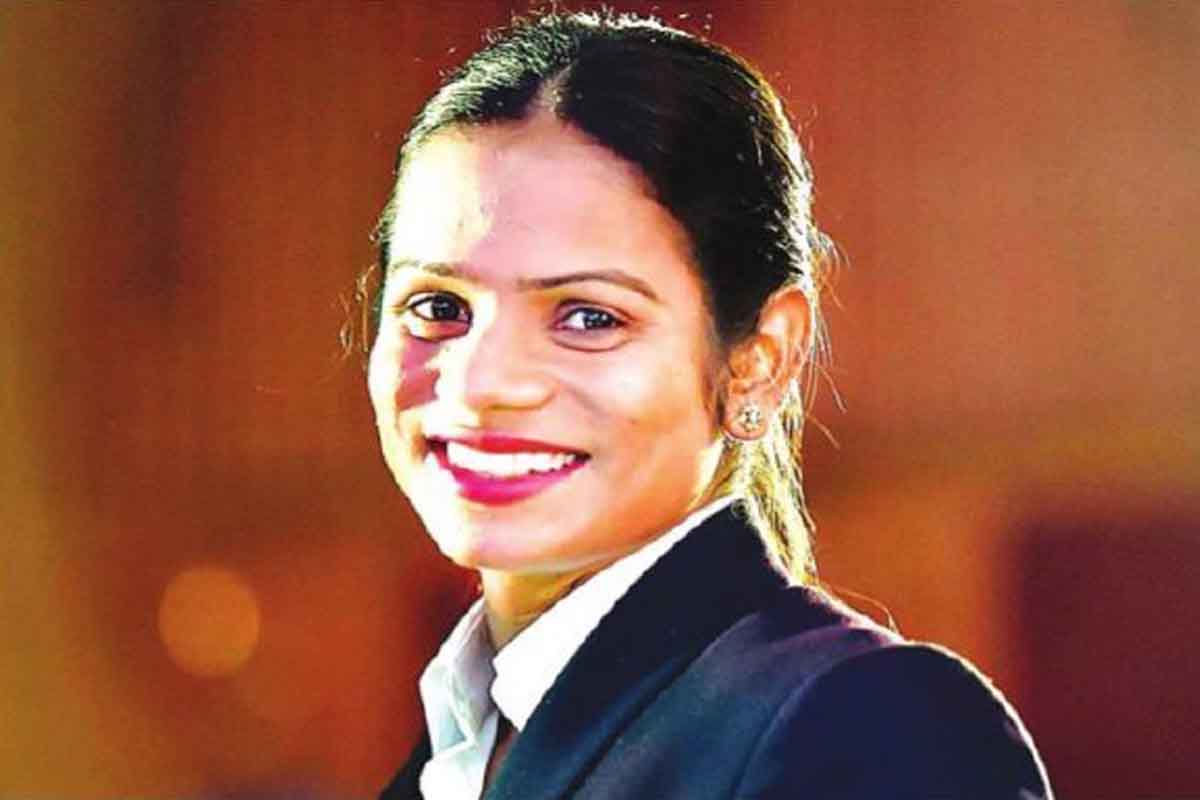The fastest Indian woman, Dutee Chand, has been inching closer to the Olympic qualification mark for the 100-metre sprint, which was set at 11.15 seconds. Her national record-breaking performance of 11.22 seconds (the previous best of 11.26 seconds was jointly held by her and Rachita Mistry), during the National Open Athletic Championship in Ranchi earlier in October, comes a few months after her coming out as gay, the first Indian athlete to do so.
In an interview with NAKSHATRA PAIN, the 23-year-old from Odisha spoke about her Olympic preparations, being a national-record holder and her life after coming out.
Advertisement
Excerpts:
Q: How did taking up athletics as a profession come about?
A: My elder sister is an athlete and when she saw that I ran well, she convinced me to take up athletics. I always used to win a lot of prizes in school-level competitions and consequently I started giving more time to my running, training for it. But it was hard for me initially. I did not have proper running shoes and neither did I have any coach or training facilities. It was a struggle at that time, but gradually my performance got noticed and the sports brand Puma gave me a sponsorship deal following which everything has gone smoothly for me.
Q: The qualification mark for the Tokyo 2020 Summer Olympics has been set at 11.15 seconds which you still have to achieve. How are you planning to do that?
A: I am doing some special training in Odisha now. The state government is helping me in every way they can. They have provided me with kits and I also have a personal trainer who draws up a daily schedule for me. I follow that diligently.
Q: How much do national championships matter to you now, given that you have already won medals in international competitions?
A: I always try to give my best in national competitions. People think that to be a successful athlete, you need to go out of India and train. But I would ask, what is the problem with training in India? The natural diet that an athlete gets here cannot be found anywhere outside the country. So, I always give a lot of priority to national competitions and show people that I perform well staying and training in India.
Sometimes, I do not perform well in international competitions, like the one in Doha. But I can shrug that off. However, I will always ensure that I do not perform in a similar way on the national stage. So, in a way, these domestic competitions matter more to me.
Q: You have obviously broken a lot of stereotypes after you came out as gay. What has been the reaction from people around you and what are the other stereotypes that you hope to break?
A: Well, actually I always had a tendency of doing things that I was warned against doing. Even as a kid, people in my village used to tell me that I should not be running and a girl like me should not be even thinking about it. But it is running that got me so far. Similarly, in my personal life, a lot of close relatives have cut off connections with me after I confessed to being gay. But I believe in what I am and I will do what I believe is right for me.
There are still stereotypes when it comes to gender. For me, a girl and a boy are the same. Previously, women were not allowed to work. Now they are working everywhere and are also making so much progress. I don’t understand what people get by objecting to lifestyle, clothing, food habits, etc. Everyone should have their freedom.
Q: How difficult was this decision of coming out, given that you are a public figure? Did you think it might hamper your career?
A: No, I never thought much about this hampering my career as I have a government job. The only fear I had in mind was whether I would get permission to compete anymore or not. I had a word with my personal lawyer and he explained that after the scrapping of Section 377, there was nothing that could stand between me and athletics, should I come out.
Q: Currently, how do you think Indian athletes fare against the international ones?
A: See, the athletes of European and African countries have a physical advantage over us. They have more height and physically they are stronger. To be able to compete against them, we need an efficient support system which will provide us with proper diet and training. That is not available to all. Once such facilities are readily available, we can be at par with them. Simply sweating it out in training is not enough for us.
Q: What are the facilities that should be improved or introduced to bring about that change?
A: To begin with, there should be more grounds where athletes can train. The way academic institutions are coming up everywhere to improve education quality, sports campuses should also be introduced in as many places as possible so that proper training can be imparted from a very young age.
Q: Any message that you want to give to young athletes who also may come across situations like yours?
A: I would tell them to listen to their heart and not come under pressure from anyone. Do whatever makes you happy, but also ensure that what you do should not affect you negatively in future. And of course, always aim to make your country proud.











